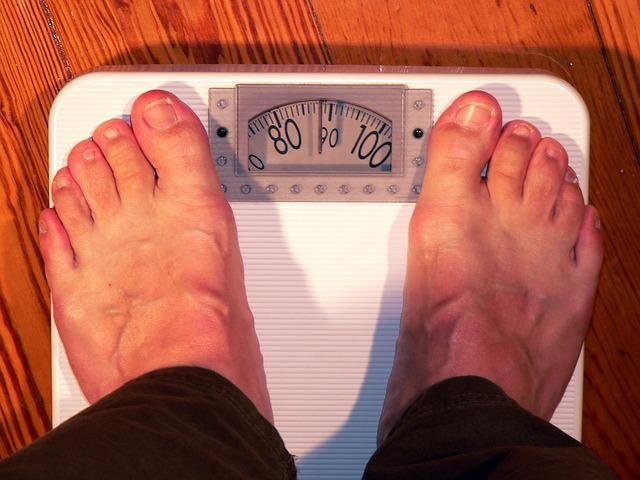Having excess body weight increases health risks and mortality rates, here are some ways to dodge the danger

Obesity is a medical condition in which a person has a dangerously high amount of body fat. The other common term is ‘overweight’ which is a only little less severe than obesity but it is still enough to put you in the category of obesity and into the whirlwind of metabolic disorders.
The obesity explosion has swung a heavy blow to the modern population, taking the lives of over 4 million people dying each year, as per the 2017 data. In 2016, more than 1.9 billion adults, 18 years and older, were overweight. Of these, over 650 million were obese.
This article will cover the causes and natural management of obesity with some valuable tips from Ayurveda and yoga.
Common health consequences of obesity
This health crisis needs to be prevented because a whole lot of other health disorders either cause obesity or share their roots with being overweight, like –
1. Type-2 diabetes
2. Heart problems
3. Thyroid dysfunction
4. PCOS/PCOD
5. Kidney failure
6. Liver problems
7. Malnutrition
8. Hypertension
9. Infertility
10. Mood disorders
What makes you obese?
Traditionally, you will be overweight if you eat more and store more calories than you burn.
Generally, obesity is caused by these:
- Eating energy-dense foods that are high in saturated/trans fats and sugar ( unhealthy carbs)
- Living a lazy and sedentary lifestyle that lacks proper exercise or body movement. This leads to the under-functioning of various vital organs and results in the accumulation of body fat.1 in every 3 women and 1 in every 4 men do not have enough physical activity required to ensure good health, tells data.
- People in high job strain occupations and poor work environments lead a stressful life and lack proper rest. Prolonged working in psychologically unhealthy work environments poorly impacts employees’ well-being and is associated with elevated risks of obesity.
- Health conditions like PCOS, hypothyroidism, and insulin resistance can also lead to weight gain ad obesity.
This makes you lose flexibility, stamina, and cry for breath and energy after doing even a slightly difficult task.
How to know if you are obese/overweight?
The body mass index (BMI) is a tool used to measure the amount of fat a person has, which can inform you if you are underweight, healthy, overweight, or obese. It can be calculated by dividing the weight of a person in kilograms by the squared value of his height in metres.
WHO warns that a (BMI) body mass index over 25 is considered overweight, and over 30 is obese.
| Formula | kg/m² |
| Example | Weight = 70 kg, Height = 165 cm (1.65 m) 70/(1.65)² |
| BMI | 25.7 kg/m² |
| Result | Overweight |
But here’s a catch, the BMI indicator of health is not always correct. Sometimes two people with the same BMI may have completely different health scenarios.
In BMI measurement, the factors like bone density and muscle mass are not considered which may lead to confusion.
Despite all odds, BMI is still a fairly strong predictor of your weight health.
10 Tips to manage obesity
Prevention is the best cure. Changing your diet and being more physically active are essential starting tips for losing weight.
1. Become a mindful eater
When you focus just on your plate while eating, you chew properly and enjoy every bite. Eating should be treated like a meditative process in which you carefully eat each morsel of food. This way you can prevent yourself from overeating.
2. Stop picking just any food
Don’t feed the furnace in your belly by stuffing junk in it. Always check if this food is going to nourish my body or just give me empty calories, like soda, energy drinks, candies, cakes, greasy foods, etc.
3. Do not drink fruits juice
They release sugar too quickly which may lead to weight gain. Choose to eat whole fruits instead.
4. Avoid cold drinks
Opt for drinkig warm or at least room temperature water. It is the best tonic drink for your body. Drinking sufficient water is linked to reduced body fat.
5. Do not sit in one place for hours
It hurts your back in the long run and leads to weight gain. Move a little, and take walk breaks after each hour to avoid prolonged sitting.
6. Avoid foods that are rich in bad carbs and saturated fats
Choose more healthy carbs and eat high-sugar fruits and vegetables in moderation.
7. Do not sleep right after meals
Sit in vajrasana for 5 minutes to improve digestion, or stroll for 10 minutes after meals,
8. Get physically active
Try different yoga poses and exercises to reduce body fat. One study shows that yoga helps overweight people lose weight and improves their psychological health simultaneously.
9. Do not stay hungry for a very long time
If you are too hungry you will definitely end up gobbling more than your appetite. So, you should eat protein-rich snacks in between meals. Nuts and seeds like pistachio, cashew, and almonds help in improving metabolism and fighting obesity.
10. Avoid pulling all-nighters
Reduced hours of night sleep in recent decades have acted as gunpowder for explosive obesity rates. Try to get at least 7-8 hours of sleep at night to prevent stress and obesity. Insomnia and liver problems are closely associated, which can alter your metabolism. Here’s how you can treat sleep disorders naturally.
The best exercise to lose weight
Yoga is the most wholesome way of losing weight as it works on your entire body rather than specific body parts. Its benefits are aimed at improving overall health and the quality of life.
If you are obese, the best way to do yoga is to start with some of the easy yoga poses to achieve some flexibility and keep you motivated. Some of the best yoga poses for weight loss are-
1. Surya Namaskar
2. Virabhadrasana 2
3. Bhujangasana
4. Trikonasana
5. The Chair Pose
6. The Tree
7. The Bridge Pose
8. The Sphinx Pose
9. Butterfly pose
10. The Cat
You can also try these interesting exercises to remove excess bulk from your thighs.
To boost your weight loss journey you can try this 7-day weight loss meal plan, which contains low fat and high-protein foods that are considered the best diet to lose weight.
Key takeaways
Obesity is almost a modern epidemic that is growing at an alarming rate. With our unhealthy lifestyle and environmental, social, and psychological factors, increasing body weight is giving rise to various metabolic disorders.
The best way to reverse obesity is to adopt healthier eating habits and become physically active. Burning calories by doing dancing, jogging, yoga or walking are the easiest and most affordable choices to beat obesity.
FAQs
- Poor diet
- Physical inactivity
- High fat/ animal-based products
- Hormonal disorders like PCOS, hypothyroidism, diabetes
- Stress
- Unhealthy environment, all of these factors lead to body fat accumulation.
Yes. Sugary foods lead to blood sugar spikes. If you are physically non-active these excess calories get stored in your body as fat. So if you must eat carbs (sugar) you should balance them with doing exercise by burning calories.
- Protein-rich foods
- citrus fruits (vitamin C)
- Warm water on an empty stomach
- Bitter gourd, bottle gourd, fresh leafy greens
- Fiber-rich foods that keep you full for a long time, whole grains, vegetables, salads
- Affects hormonal gland function (thyroid, pancreas, adrenal gland)
- causes insulin resistance
- decreases immunity
- affects bone density/ risk of fracture increase
- heart problems ad hypertension increase
- Lowers stamina
- Makes your body weak and sluggish







